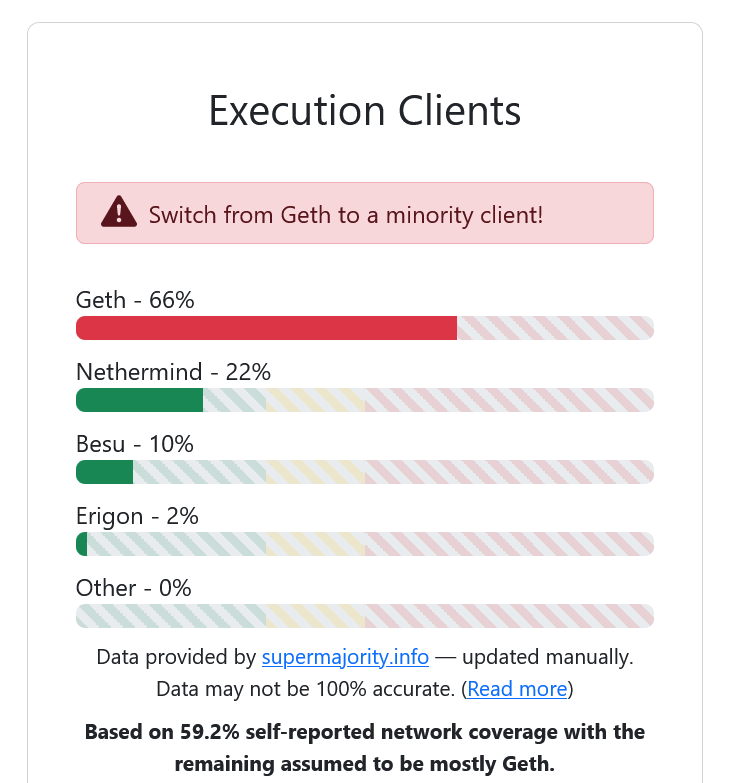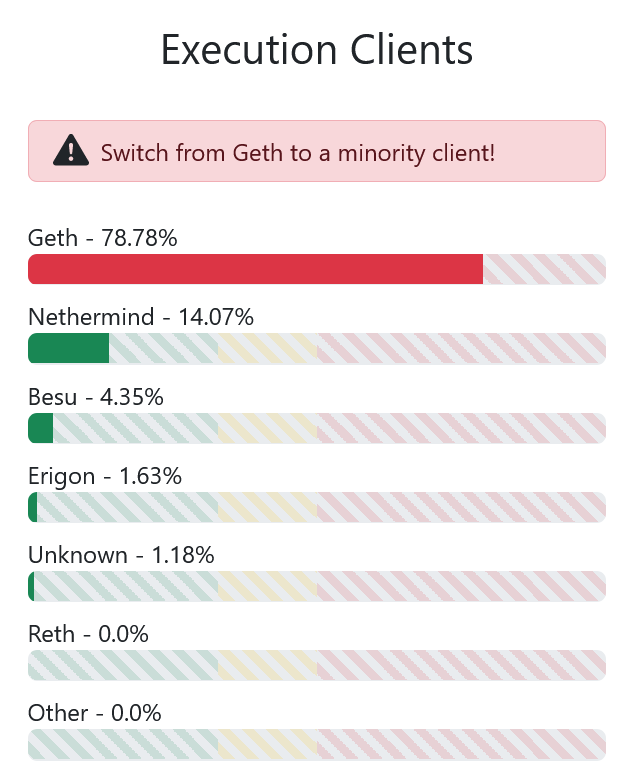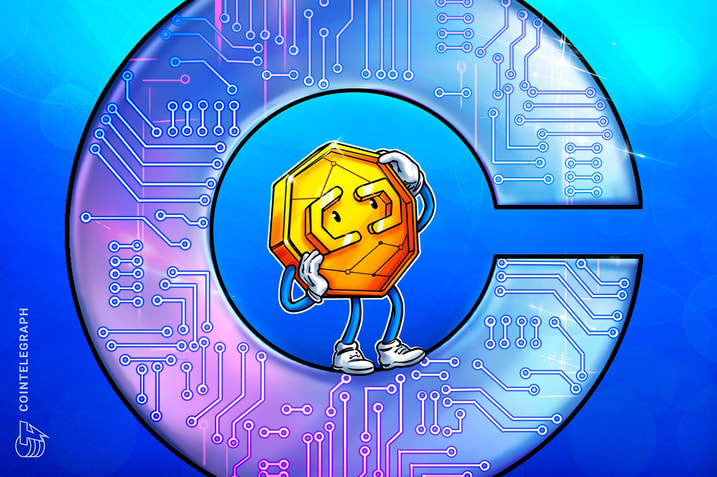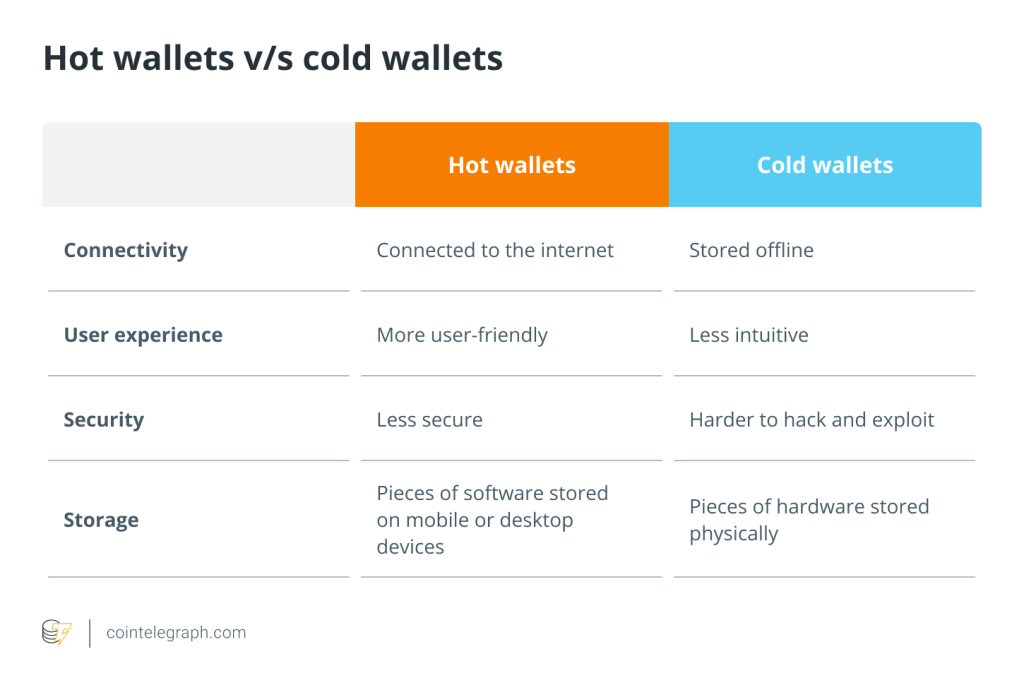Ethereum client diversity improves, non-Geth clients now account for 34%

While the reduced reliance on Geth is good news, “we can’t declare victory yet,” says Lachlan Feeney, founder and CEO of Ethereum infrastructure firm Labrys.

The market share of Geth — a major Ethereum execution client — has fallen from a high of 84% in late January to 66% following Coinbase’s recent move to switch around half of its validators to Nethermind, though one commentator says that the fight for decentralization is far from over.
The reduced reliance on Geth helps to address a long-feared centralization risk for Ethereum, with concerns a critical bug in an execution client with a 66% or more share could stop the chain from finalizing. One commentator however, warns that the industry shouldn’t decalre victory just yet though.
On March 22, Coinbase Cloud revealed that “roughly 50%” of its validators switched to Nethermind, which helped bump the execution client’s share up to 22%, according to Client Diversity.
Besu owns a 10% share of Ethereum validators, while Erigon — which is also being supported by Coinbase — has a 2% share, bringing the total minority client share to around 34%.

Execution clients on Ethereum play a major role in handling transactions and executing smart contracts on the blockchain.
Geth is widely regarded as the most advanced client. However, its strong preference among Ethereum validators has led to an imbalance in execution client diversity over the last few years.
The fight isn’t over yet
“We can’t declare victory yet,” Lachlan Feeney, founder and CEO of Ethereum infrastructure firm Labrys told Cointelegraph.
Feeney claims the methodology Client Diversity uses to obtain its figures is flawed and that Geth needs to move a “decent amount below the 66% threshold to account for any margin of error before we are confident that a supermajority bug isn’t possible.”
The “real victory” cannot be declared until no singular client controls greater than a 33% share, Feeney added.
He emphasized the importance of solo staking in diversifying executions clients, which would also prevent those stakers from being subjected to a supermajority bug on Geth.
Related: Vitalik Buterin on fix for Ethereum centralization: Make running nodes easier
Ethereum decentralization advocate “Superphiz” recently voiced that a critical bug in Geth could potentially wipeout 80% or more of Ether (ETH) staked on the network.
There are currently 31.5 million Ether staked, according to Beaconcha.in, which is worth about $113.5 billion at current prices.
Meanwhile, Coinbase said it will continue to play its part in diversifying its own validator set to help decentralize Ethereum:
“Ensuring the security of our customers’ assets and contributing to the resiliency of the Ethereum network are — and have always been — of paramount importance to us. Diversifying execution clients on our validators helps us accomplish both.”
Coinbase said it intends to “evenly distribute” its validators between Geth, Nethermind and Erigon over the long term.
Feeney noted that Sigma Prime, Kiln, Octant, Lido, Ankr and Twinstake have also reported a reduced reliance on Geth.






Responses